The scientist that came back: “I returned by a stroke of luck”
Francesco Bedogni is a young man from Legnano, who has a degree in biotechnology, and who emigrated to Seattle. Today, he works in Varese’s Insubria University, in the molecular biology laboratory, and he tells his story. “There, budgets are not planned if the experiment is useful.”
Francesco Bedogni is a young man from Legnano, who has a degree in pharmaceutical biotechnology. He was part of the “brain drain”, but then, he came back. As he explains, “Mine is not the typical case of a researcher who leaves Italy, because he doesn’t fit in, or because he hasn’t got a job; I went to the USA simply because I wanted to do new things in a new environment.” (This interview was done for www.mappacervelli.org)
“My choice to go abroad didn’t just “happen”, it was natural, because I always thought that “specialising” abroad was necessary in order to get to know new scientific environments and approaches. During the first two years in Seattle, half of my salary was paid by Milan University (with a Foreign Specialisation Scholarship); my intention was to acquire new knowledge. Then, from the end of 2007 to the end of 2009, I was more or less forced to stay, because I was having a great time with my experiments, and it seemed a pity to stop at that point.”
“I would probably have obtained a scholarship to continue my work in Italy. The truth is that I didn’t even consider other countries, and I already had a visa for the United States. Moreover, if I then decided to return, any experience in America would increase my knowledge to transfer to Italy, and give me a better CV.”
“The initial impact was traumatic, which I think is true of any kind of experience abroad. At the beginning, it is very difficult to fit into an environment and research setting that are completely new, that involve acquiring new techniques and knowledge. But in Seattle, I immediately found a lot of help, both in the lab and outside. I can’t say that I was ever “homesick”, or that I ever regretted it. I enjoyed it from beginning to end. And Seattle helps a lot in these cases; I know it’s considered to be a rainy city, and it is, but it’s also wonderful, incredibly relaxing, set in very unusual countryside.”
“The experience lasted about 4 years; I’m satisfied with a lot of things. One of these is that people are surprised by the choice I made; this is satisfying, because it was in no way a burden. Apparently, without knowing it, I did something that others would never have done! Probably the greatest satisfaction is to have made a good impression, and to have left a lot of friends, with whom I’m still in close contact. I can say that I managed to integrate into a very international circle of people with whom I immediately felt at ease. Obviously, it gave me a certain satisfaction, and indeed still does, to see my articles published, or about to be; the scientific part of the experience was quite fruitful, as well as unforgettable.”
“My return was a stroke of luck, as well as an amusing story. In March 2008, I asked Dr. Landsberger for some reagents. She replied to my request in a few minutes, despite the 9-hour time difference between Italy and the West Coast. She said she was sorry, but she couldn’t give me the reagents, because her lab was still working on them. I told her not to worry, and that I’d be able to work without them; and I told her to call if she ever had a position for me in Italy. Again, she replied a few minutes later, saying that there was, in fact, an idea to fill a new place. I think it took me a few seconds to send my CV, so after about a quarter of an hour, we were thinking of working together. A year and a half after this series of e-mails, I was sent the e-mail addresses of Insubria University and San Raffaele Hospital. This is one of the reasons why I consider my case to be extremely lucky and very different from many other more frequent and decidedly unfortunate cases.”
“It isn’t so different from what I was accustomed to in Seattle, also because Dr. Landsberger has spent more time in the States longer than I have. The real difference is that, in Seattle, when you planned an experiment, the budget necessary to do it was never checked; here the problem is the lack of money, and this must always be considered.”
“If you mean the ‘salary’, I never even considered whether I was earning more or less. I was indeed earning more in the States, but I can’t complain about what I get here in Italy, the ProRETT association, which funds my work, has always treated me very generously. I think that, for anyone that stays in Italy after their doctorate, the prospects are often limited, and maybe not very attractive. My advice is to spend at least a short study period abroad (not necessarily in the States), in order to have a more varied curriculum and experience when you come back to Italy.”
“Happiness; I like the projects that they’ve offered me, and many approaches occur to me whenever I think about how to proceed. There’s also a lot of fun to be had in the difficulties there are, but, with a bit of imagination, these can be made to be less “restrictive”. At the moment, I’m probably still unconsciously optimistic, but I’m doing the job I studied for, which I like doing. I’m not looking for a stable post or anything like that for now. I think I’m at a stage when I can consider myself satisfied and fortunate if everything goes the way I’m trying to make it go. If things don’t go the way I hope they do, I don’t think I’d have any problem trying my luck elsewhere, probably in Europe. I’ve done it once before, I think I can do it again, although, this time, this move would be forced upon me.”
“I think that the scientist should be an “instrument of knowledge”, because new solutions to problems and difficulties that affect us come from the discoveries of basic science. Given the “international nature” of scientific discoveries, the scientist is, above all, a source of pride for the country that trained him. So, I can’t deny that the Italian politicians shouldn’t boast about the results achieved by Italian science, but consider themselves lucky that a great number of young, talented scientists have gritted their teeth, and not given up, or, even worse, left the country never to return.”
La community di VareseNews
Loro ne fanno già parte
Ultimi commenti
Felice su "Togliete quelle pellicole: il viaggio in treno è anche il nostro bellissimo panorama"
Felice su Abbandona rifiuti nei boschi della Linea Cadorna: multa da 4.500 euro ad un 60enne
Alfaman su "Togliete quelle pellicole: il viaggio in treno è anche il nostro bellissimo panorama"
fp su "Togliete quelle pellicole: il viaggio in treno è anche il nostro bellissimo panorama"
lenny54 su “Adesso ti ammazzo", paziente sfonda il vetro con una pietra e devasta l'ambulatorio a Mesenzana
PaoloFilterfree su "Caro generale Vannacci le tue tesi sono strampalate e la Storia è una cosa seria"



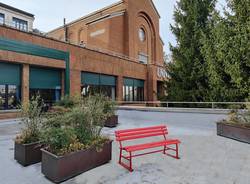
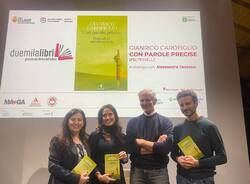

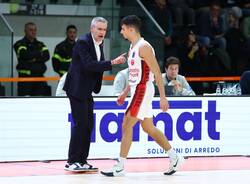


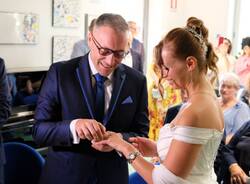
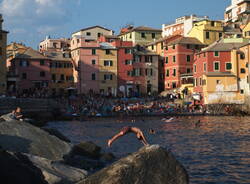

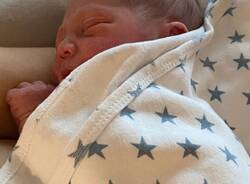
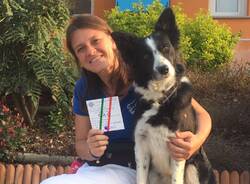


Accedi o registrati per commentare questo articolo.
L'email è richiesta ma non verrà mostrata ai visitatori. Il contenuto di questo commento esprime il pensiero dell'autore e non rappresenta la linea editoriale di VareseNews.it, che rimane autonoma e indipendente. I messaggi inclusi nei commenti non sono testi giornalistici, ma post inviati dai singoli lettori che possono essere automaticamente pubblicati senza filtro preventivo. I commenti che includano uno o più link a siti esterni verranno rimossi in automatico dal sistema.